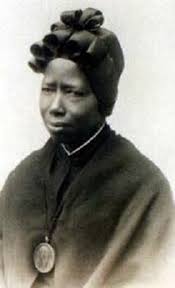Let’s start with five questions so we know better what our parish is like. The answers will help me as pastor, and they’re easy so you can relax:
1) Put up your hand, please, if, when you hear the command of Jesus to “love our neighbour,” (Mt 22:39) you think this is something positive?
2) How many here are enthusiastic when it comes to loving your neighbour?
3) How many, when you hear the word ‘evangelization,’ think this is positive?
4) How many here are enthusiastic about evangelization?
5) (You don’t have to raise your hand for this question.) Can you think of any of Jesus’ commands that are bad for us, that cause harm? Of course, they may be difficult, but will any of them ultimately hurt people? We’ll come back to all these questions later.
 Today, celebrating Jesus’ Ascension back to heaven, we just heard Him give His last command, and a last command is always something we should pay attention to: “Go therefore and make disciples of all nations, baptizing them in the name of the Father and of the Son and of the Holy Spirit, and teaching them to obey everything I have commanded you” (Mt 28:19-20). Clearly, this command is about evangelization. So today’s homily is about evangelization and has three parts: 1) What evangelization is not; 2) Evangelization is about loving our neighbour; 3) How do we do it?
Today, celebrating Jesus’ Ascension back to heaven, we just heard Him give His last command, and a last command is always something we should pay attention to: “Go therefore and make disciples of all nations, baptizing them in the name of the Father and of the Son and of the Holy Spirit, and teaching them to obey everything I have commanded you” (Mt 28:19-20). Clearly, this command is about evangelization. So today’s homily is about evangelization and has three parts: 1) What evangelization is not; 2) Evangelization is about loving our neighbour; 3) How do we do it?
1) When we hear the word ‘evangelization,’ some of us think of Billy Graham, pastors on TV being very emotional, Protestants on the street holding a Bible in their hands, or Jehovah’s Witnesses coming to our door. Here’s the point for us: When Jesus asks us to evangelize, He’s not asking us to go on TV, get emotional, or force people to become Catholic. Evangelization isn’t something irrational or bizarre, and it isn’t pushy. If we ever meet someone forcing religion, then that’s not Christian.
Have we ever realized that God doesn’t force anyone to believe in Him? He doesn’t appear to us and say, “You have to believe in me!” Why? The answer is profound. He doesn’t force us to believe in Him because faith has to be free: If we’re not free to say, “No,” we’re not free to say, “Yes.” God loves us, and love too must be free. When we fall in love with someone, do we go up to that person, grab them by the shoulders, and say, “Love me!”? So too with God: like a lover, He doesn’t force us, but He does try to win us. He’s in love with us and thus seeks to win our head and hearts, and lets us get to know Him so that we can fall in love with Him.
2) So what is evangelization? Very simply, it’s about helping people get to know and love Jesus. For us Christians, Jesus is everything for us; He’s the answer to our life and to all our questions. We just want to tell everyone we know about Him, because we want them to be as happy as we are. When we fall in love, it’s natural to introduce that person to our family and friends.
 This is Josephine Bakhita. She was born around 1869 in Sudan. When she was nine, “she was kidnapped by slave-traders, beaten till she bled, and sold five times in the slave-markets of Sudan. Eventually she found herself working… for the mother and the wife of a general, and there she was flogged every day till she bled; as a result of this she bore 144 scars… In 1882, she was bought by an Italian merchant…who returned to Italy” (Pope Benedict XVI, Spe Salvi, 3).
This is Josephine Bakhita. She was born around 1869 in Sudan. When she was nine, “she was kidnapped by slave-traders, beaten till she bled, and sold five times in the slave-markets of Sudan. Eventually she found herself working… for the mother and the wife of a general, and there she was flogged every day till she bled; as a result of this she bore 144 scars… In 1882, she was bought by an Italian merchant…who returned to Italy” (Pope Benedict XVI, Spe Salvi, 3).
Pope Benedict, writing about her life, says that, “after the terrifying ‘masters’ who had owned her up to that point, [she] came to know a totally different kind of “master…” She heard that there is a [master] above all masters… and that this Lord is good, goodness in person. She came to know that this Lord even knew her, that He had created her—that He actually loved her… What is more, this master had Himself accepted the destiny of being flogged and now He was waiting for her ‘at the Father’s right hand…’
After meeting this truly good master, Jesus, she said, “I am definitively loved and whatever happens to me—I am awaited by this love. And so my life is good.” “When she was about to be taken back to Sudan, [she] refused; she did not wish to be separated again from her [Master]. On 9 January 1890, she was baptized and confirmed and received her first Holy Communion.”
Six years later, at the age of 27, she joined the Canossian Sisters and part of her apostolic work was going around Italy to support missions in Africa. “The liberation that she had received through her encounter with the God of Jesus Christ, she felt she had to extend, it had to be handed on to others, to the greatest possible number of people.” This is evangelization. If we have experienced a love like this, isn’t it natural to want to share it with other people? We want everyone to know they are definitively loved and that, whatever happens to them, they are awaited by this love—this love isn’t an idea or an abstraction; it’s a person, and He has a name.
Sr. Josephine Bakhita was canonized in 2000 and became St. Josephine. Her feast day is Feb. 8.
 This is Theresa Bonopartis. Tragically, she had an abortion when she was 18, and as a result, went through hell: with depression, low self-esteem and suicidal thoughts. Even though she was Catholic, she never knew Jesus and how much He loved her; she even mistakenly thought Jesus would punish her for her sin.
This is Theresa Bonopartis. Tragically, she had an abortion when she was 18, and as a result, went through hell: with depression, low self-esteem and suicidal thoughts. Even though she was Catholic, she never knew Jesus and how much He loved her; she even mistakenly thought Jesus would punish her for her sin.
It was during her third child’s preparation for First Reconciliation that she heard the priest say that every sin can be forgiven, even the sin of abortion. So she decided to contact him and went to Confession for the first time in many years—she was on her way home, spiritually speaking.
But she still struggled with forgiving herself. She writes: “One night I felt depressed and suicidal again, but despite these feelings, I also somehow felt a deep trust in God… I closed myself in the bathroom, crouched on the floor, and repeated over and over, ‘Jesus, I trust in You.’ I don’t know how many hours I did this, but well into the night I had an experience that changed my life. I experienced being on the cross with Christ. But instead of experiencing suffering, I felt love so intense that it was capable of taking away that pain. I felt His love wash away my sin and I knew my healing was complete.”
Theresa now spends all of her time sharing the mercy of Jesus with all people—that’s evangelization. People need healing and unconditional love, and she’s introducing people to the person who is healing itself, who is unconditional love. She reminds us that every sin can be forgiven, that God’s love is greater than our mistakes, and that He can heal everything.
 Last example: Matthew Kelly, who wrote the two books we’ve given out during Christmas and Easter, Rediscover Catholicism and Rediscover Jesus, is so talented and successful that he spends four days a month working as a business consultant—that’s how he makes his living—and the rest of his time evangelizing at Dynamic Catholic, the organization he started.
Last example: Matthew Kelly, who wrote the two books we’ve given out during Christmas and Easter, Rediscover Catholicism and Rediscover Jesus, is so talented and successful that he spends four days a month working as a business consultant—that’s how he makes his living—and the rest of his time evangelizing at Dynamic Catholic, the organization he started.
Why? Because, when he was 15 years old, he was dissatisfied with the ideas and values the world was serving up and realized there has to be more to life than this. He had everything going for him, but still wasn’t happy. And then one idea changed his life: that Jesus calls us to holiness. In this perspective, “everything in life, triumph, trial, tragedy is an opportunity to grow in holiness. Every moment has meaning” (Matthew Kelly, The Four Signs of a Dynamic Catholic, 77, 162). Helping people learn God’s plan for their life, to find meaning in everything is part of evangelization.
The reason I asked the four questions at the beginning of the homily about loving our neighbour and evangelization is because evangelization is the best way to love our neighbour. Based on the lives of the three people we’ve just covered, what could be more loving than helping people find unconditional love (St. Josephine), unfathomable mercy (Theresa), and meaning (Matthew)?
Take it a step further. We believe that Jesus is eternal life: To know and love Him is eternal life (Cf. 1 Jn 5:20; Jn 17:3; 1 Jn 1:2). Yet most of the things we give people are temporary. But when we give them Jesus, we’re giving them something eternal.
Take it another step: We know that God exists and that He’s the creator of all things, of heaven and earth. He created every single person and loves them. Evangelization means helping people know their creator, the one who has a plan for their life, even if they don’t know it—that’s a priceless gift. If there were a family, and some of the children were estranged from the parents and refused to come home, it would still be the right thing for the brothers and sisters who are at home to do whatever they can to reconcile their siblings with their parents, even if the estranged ones don’t want it. Likewise, most people don’t know they’re estranged from God, but it’s still the right thing to try and bring people home.
And none of us believe Jesus’ commands hurt us (the fifth question I asked). So, if He commands us to go and make disciples of all nations, baptizing them and teaching them all that He has commanded us, then it can only do us good.
But, you may ask, “Fr. Justin, what if people don’t want to hear it?” Then don’t force them. (Unless they’re our kids! If they’re living under our roof, then they have to abide by our rules. Kids sometimes don’t want to go to school, but, since they don’t know what’s good for them, we still insist that they go.)
Many of my family and friends don’t know and love Jesus. Some of them are open, and, if they are, we have good discussions, and sometimes I invite them to look at this or that, or to come to church. But, if they aren’t open, I don’t push them. I simply love them. I do as much good for them as I can. I wish they would come to know Jesus, but I won’t force it.
 3) This leads us to the third point: How do we evangelize? Let’s focus today on the first steps. If we’re prone to anger, impatience, and rudeness with our family, then we’ll have no credibility. If we’re lazy at school and work, no one will listen to us. We must therefore be virtuous: friendly, kind, helpful, attentive, courageous and do everything well—that will win people.
3) This leads us to the third point: How do we evangelize? Let’s focus today on the first steps. If we’re prone to anger, impatience, and rudeness with our family, then we’ll have no credibility. If we’re lazy at school and work, no one will listen to us. We must therefore be virtuous: friendly, kind, helpful, attentive, courageous and do everything well—that will win people.
When people look at us, what do they see: Catholic and miserable, Catholic and surviving, or Catholic and thriving? If people see that religion has made a positive difference in our lives, they’ll be intrigued.
Talk to people about serious things. Why? Because talking to people about superficial things ultimately doesn’t help them. Ask them how they’re really doing, talk to them to see if they’re happy, offer to help them or pray for them (People love being prayed for.) This is one way Jesus enters into their needs and sufferings.
Don’t be preachy; be yourself. Share with them your own faith: If your faith in Jesus, in the Church has made a difference, if you’ve found meaning through His teachings, then share that. If Jesus is the most important person in your life, share Him. Don’t hide your faith (that means we have no confidence or are insecure, which no one respects)!
And, if they’re open to it, talk to them about God, invite them to church, invite them to Alpha, or to the Faith Studies if they’re already Catholic.
Evangelization, if done well, can never hurt anyone. It might challenge them, but will never hurt them. It actually makes us more aware of being virtuous, it makes us more attentive to people’s needs, and seeks to offer unconditional love, unfathomable mercy, meaning, eternal life, and reconciliation with our neighbour.
I hope we’re now more enthusiastic about evangelization / bringing people Jesus. Why? Because it’s ultimately the best way to love our neighbour.